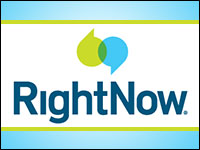
NetSuite CRM+ is a customer relationship management tool that provides users with more than just standard customer service functionality. NetSuite’s system gives users the capability to run their entire business by providing a single view of the customer.
“NetSuite provides a complete business management suite,” Paul Turner, the company’s senior director of product marketing, told CRM Buyer. “It’s a big differentiator for us.”
NetSuite entered the market in the late 1990s and has grown into one of the premier Web-based solutions, said Brent Leary, cofounder of CRM Essentials.
“They’re doing a lot of interesting things,” Leary told CRM Buyer.
When the company was founded, NetSuite tended to be more operations-oriented, noted Jeff Furst, founder, president, and CEO of Furst Person.
It has grown since then and can perform multiple functions, he explained, noting that the integrated accounting/financing perspective of the system was particularly good for small businesses.
“That NetSuite tool is a very compelling choice,” Furst told CRM Buyer.
Information at Fingertips
NetSuite allows a company’s users, from sales representatives to financial analysts, to view customer information in one place, NetSuite’s Turner explained. “All the information is there at their fingertips.”
This is particularly useful because users can easily determine if issues with customer service may be impacting the customer relationship, he continued. Rather than seeing fragmented information, the users see all interactions and touch points with the customer.
NetSuite provides role-based dashboards that are easy to use, Turner said, and include a corporate-level executive view that shows all information, including sales, financial and service, providing a complete picture of customer satisfaction.
NetSuite offers case management functionality, the ability to log tickets, issue- and support-tracking, representative notification, and graphical workflow management. Users can route cases, assign time windows, and manage the lifecycle of a ticket, noted Turner.
Online Portal
NetSuite’s online portal allows customers to log in and enter their own ticket, track progress, access time-tracking capability, and use a knowledge base where they can find self-service resources such as support guides and tips.
Vendor communities such NetSuite’s and social media networks are becoming more common customer service options, and their use will continue to grow, CRM Essentials’ Leary said. Active user communities are supplanting traditional tier 1 support, he observed.
Services like NetSuite that can provide customer communities can empower customers to become customer service representatives to other customers, Leary explained.
Rather than replace the professional customer service representatives, it allows them to interact more with customers and focus their time better, he pointed out. Such a community can prove to be faster for the customer and can also drive down the cost of service.
“It can be a win-win,” emphasized Leary. ” A really important win-win. It is a collaborative effort at this point.”
Companies should also be aware of the collaborative capabilities of social media networks, especially since they can help companies become more proactive rather than reactive with their customers, Leary advised.
Customers are talking to other customers on social networks, and it is important for companies to utilize the networks to listen effectively to what their customers are saying, he pointed out.
“It really can provide a competitive advantage,” stressed Leary, noting that companies with the most experience with collaborative customer service are becoming more successful. “There was a big payoff for companies that took a more strategic view of how to leverage it.”
The Cloud Improves the Customer Experience
Cloud computing is having a significant impact on traditional methods of customer service and customer relationship management.
Adoption of CRM tools is accelerating from on-premise to the cloud, NetSuite’s Turner observed. Unlike on-premise pricing, in which all costs are upfront, NetSuite offers monthly subscriptions based on the number of users per month.
“It’s subscription-based pricing,” Turner said. “It’s 100 percent cloud-based; 100 percent over the web.”
NetSuite’s system gives companies without local IT sources the ability to deploy a CRM system across multiple locations and still use real-time dashboards, Turner explained. The Web-based model also allows NetSuite to serve companies of various sizes and industries, he said.
“We have some pretty big deployments of our CRM solutions,” Turner noted. “We have a pretty substantial cross-section of companies.”
Subscription-based pricing models are likely to grow as Web-based solutions became more popular, Leary predicted, because they do not require a huge investment in new hardware or installation. Without having to worry so much about hardware and software, companies are freer to concentrate on improving customer service.
The ability to create better processes and a better experience for the customer is what a company should look for when choosing a customer service solution, he advised. It is especially important to find a vendor that can communicate across multiple channels.
“The cloud has made it easier to do better service,” Leary said.






















































